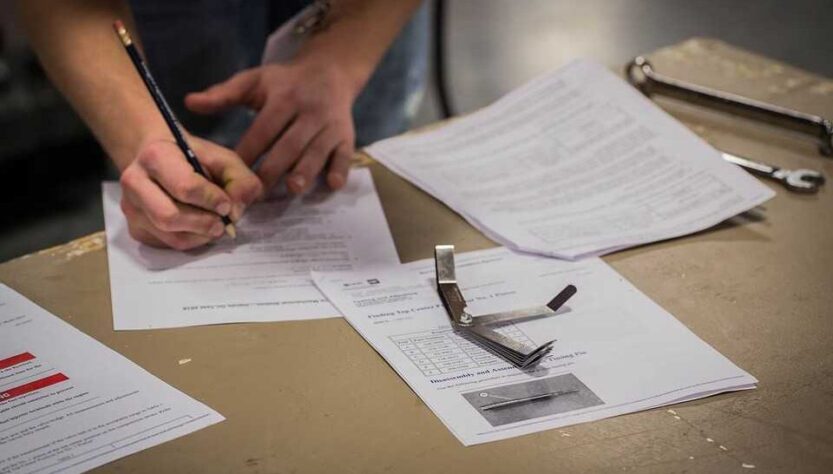Irrespective of streams, we are all guilty of doing last-minute studying before the exams. Last-minute studying induces a sense of fear and pressure and hence, it should be avoided as much as possible. Before we go further, it is important to note that last-minute studying and last-minute revision, though may sound similar, are a bit different from each other. During the last revision, you recall and go through the concepts that you have already learned, and you test yourself as to whether you still remember them or not. During last-minute studying, you tend to stuff in as many new concepts or formulas in your head as you can just before the exam and this is often found to have more adverse effects than beneficial ones.
You will be adding doubt and confusion to the already learned concepts. You will mix the formulas of one topic to the ones you have already learned and at the same time, putting undue pressure and anxiety on yourself. And so, it is advisable to not practice this. Revision on the other hand is quite important. It will not only help you recall all the most crucial elements of your subject but also reduce your stress and help you to be more confident in your preparation.
You can draw parallels between the syllabus and your preparation, and if you are satisfied then you are bound to get the marks you aspire to get and do well. Even after you have completed your paper you can go through it again to be sure of the fact that you have written all points and have not skipped any or have not made any mistakes. Now, how do revising important questions before any exam affect us and our preparations? Keep reading to find out the important points regarding the same.
Most students have this question in their minds about whether or not they should practice only important questions before the exams during their revision. This question has been bugging students of all classes and streams irrespective of the subjects. The answer to this is not a one-line answer as if one has to summarize the answer to this question; it would be yes and no. So we need to elaborate more on this. A proper look and discussion are required to properly understand and deliberate on this question.
1.Do you need to solve these questions or go through the concepts? The answer is that you need to do both. But how? First, take out all the questions that you think are important and that you need to revise before the exam. Then start solving them. Once you start solving them, you will start recalling the concepts that are associated with these questions. In this manner, you will not only be solving these questions but in the process, you will also be revising and brushing up on your concepts. Now there might be questions that trouble you, in this case, you need to go back and refer to the topic again to clear your concept. Just because a question is tough, do not skip it, rather try to understand its concepts and logic and then solve it. It might also happen when you refer to the solutions of these questions. You might come across some important points as well which you might have overlooked during your initial preparation or when you first read that chapter or topic.
2.The source of these important problems is very important. If the source is reliable and good, then you will be acquainted with the paper format and types of questions just by practising these questions. These will in turn highlight the important topics from the chapter. Furthermore, if similar questions are set in the question you will be able to effectively tackle those with ease. So, the source is of great importance. If your source is not reliable, then you spend your time doing irrelevant questions, which in turn will neither challenge you nor improve the quality of your revision.
3.Practising questions that you think are important as opposed to just reading and revising has its important benefits. You will make mistakes while solving these questions and hence when you sit for your exams, there are fewer chances that you will repeat the same mistake. And in this manner, you will recognize the areas prone to mistakes and confusion and you will be able to target them better. This realization does not come when you are just reading and revising. So, in this regard, practising questions that you have sorted out as the important ones is a better alternative as compared to just reading the content and revising.
4.Select a time frame to complete these problems. This will help you in understanding time management. Whenever you are solving questions from sample papers or past years’ papers, you need to clock your efforts.
5.Whenever you are doing these questions, keep all your notes and points handy so that you can refer to them while solving these questions. This is always a very effective measure to improve the quality of your revision and also save a lot of time. You will also be able to revise these short notes, etc., in the process.
Now that you have read all the tips, go and apply them. Remember, solving the questions that you think are important, is a very good measure provided and it is well supplemented by other measures, such as recalling concepts, formulas, time management, etc. Otherwise, you will end up only being able to mug up the questions rather than revising them. Hence, solve these questions in a well-planned manner and not haphazardly. Hard work must be complemented with smart work and proper structure of work. If you do this, you are sure of success.

